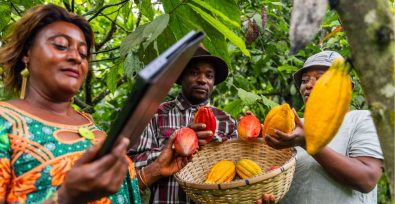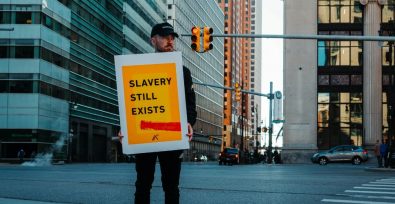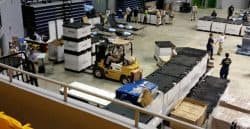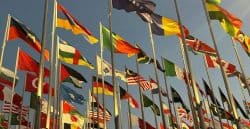Forced child labor and cocoa have been linked for decades. Driven by poverty and no living wage, families often have no choice but to put children to work. Instead of attending school, children spray dangerous pesticides, clear forests with sharp machetes, and carry heavy sacks of cocoa, sometimes weighing 100 pounds or more. Progress in Côte d’Ivoire and Ghana, however, shows that grassroots support and community engagement can transform these conditions.
“We know there’s a problem, let’s work together to find a solution”
A 2020 US Department of Labor report stated that 1.56 million children living in cocoa-growing households were affected. Many labor alongside their parents just to survive. Recent four-year projects funded by advocacy and industry groups are creating change, including child labor monitoring systems and village savings and loan associations to help cover school fees and supplies.
Joyce Poku-Marboah, former senior project manager for child and forced labor at Rainforest Alliance told Reuters:
“Before, many people just had no real knowledge of what it (child labor) is… they would regularly get their kids to undertake tasks that were inappropriate for their age, but that’s no longer so frequent.”
Peer-to-peer education among cocoa farmers is having the greatest impact. Resident-led community child protection committees (CCPCs) coordinate volunteers to do outreach and flag children at risk. Unlike third-party audits, volunteers speak as fellow community members, working with farmers to understand the laws, the value of compliance, and the long-term benefits of sending children to school. They also point farmers toward support services to reduce reliance on child labor.
Not about zero tolerance but robust systems and protections
These efforts are ongoing, and positive changes are not universal. Ghana also has a five-year child labor action plan, emphasizing community engagement, social interventions, and improvements to rural education. Esther Ofori Agyemang, head of the Child Labour Unit within Ghana’s Ministry of Employment, said:
“Because the issue of child labor is multifaceted… a lot of ministries with the mandate to protect children must be at the forefront and work intertwined to achieve results.”
She stresses that the child labor-free concept is “not about the zero absence of child labor.” The focus is on robust systems and protections. With these in place, risks of child labor can be minimized, families lifted out of generational poverty, and systemic causes of forced labor addressed.
Help us cut down forced child labor at the root!
At Freedom United, we recognize that poverty drives forced child labor. It is not child labor itself we reject—it is the conditions of exploitation. If cocoa farmers cannot earn a living wage, they must rely on children as a cheap and exploitable labor source. Since 60% of the world’s cocoa is grown in Côte d’Ivoire and Ghana, these countries are crucial in the fight against child labor in the sector.
Despite public pledges, many major chocolate companies—including Mondelēz, makers of Cadbury, Oreo, Milka, Toblerone, and Green & Black’s—have not gone far enough to address abuses. Journalist Oliver Balch noted:
“One generation has already passed through childhood since the cocoa industry’s initial pledge. The same fate cannot be inflicted on a second.”
Mondelēz’s ongoing lack of transparency around forced child labor, living wages, and deforestation is particularly concerning. Freedom United calls on the company to step up, disclose supply chain information, and participate in the chocolate scorecard.
With public pressure and coordinated advocacy, we can create real change. By supporting initiatives that ensure farmers earn a living wage, strengthen community-led protections, and expand educational access, we can cut forced child labor at its root. Together, we can make chocolate truly sweet—free from exploitation.







Freedom United is interested in hearing from our community and welcomes relevant, informed comments, advice, and insights that advance the conversation around our campaigns and advocacy. We value inclusivity and respect within our community. To be approved, your comments should be civil.